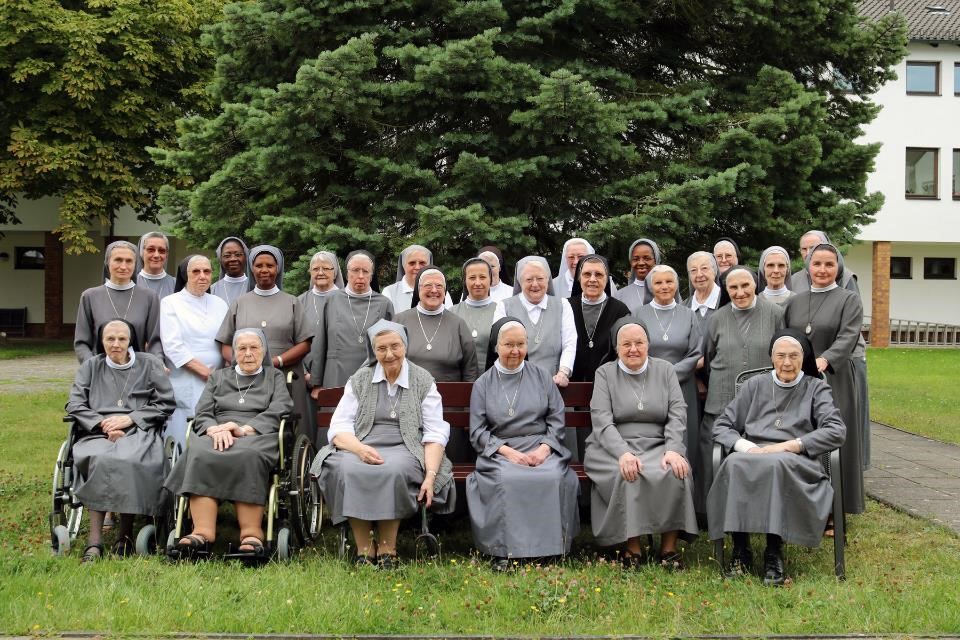In the course of the many thoughts that we have already given ourselves on the subject of “unity”, one thing has become very clear. Unity is not something that is there. Unity are relationships that arise, that can grow and be deepened, and which must be dealt with carefully so that they are not lost (see also the letter from Sr. Sybilla). So today I want to reflect with you on how unity can emerge and be deepened.
Unity starts with me
There is a realization that we make in the course of our lives – one sooner, the other later, and which is often very painful: I cannot bake my fellow human beings, i.e. bend them into the way I would like them to be. That would only be done by force and often takes bitter revenge. World history knows numerous examples of this, and many people can also tell of these experiences: parents, teachers, pastors. This is also an important insight for any community. I cannot achieve unity by using rules and regulations to urge others to do something together.
I cannot change the others. Change can only start with myself. This is how the first step towards unity begins with myself.
Unity grows gradually
One of the most famous parables of Jesus is the parable of the seeds. Nature takes a lot of time to grow and bear fruit. What applies to nature also applies to human life. Here are two current examples:
– German unity
We can learn a lot from German history on the subject of unity. One of these experiences is that unity is slow to develop. After the period of demarcation in the “cold war”, a policy of rapprochement between the two German states followed in Germany. And it was a long road that led to reunification.
– ecumenism
There are similar experiences in the field of ecumenism. Here, too, there are many efforts to bring the two major Christian denominations closer together.
Above all, it becomes clear that this approach is from below. People get to know each other, discover the lovable sides and strengths of the other and can thus overcome separations and divisions.
Unity costs something
Do you know the saying: “What doesn’t cost anything is also worth nothing.” I don’t think very much of this saying. It is similar to the misconception that medicine has to taste bitter if it is to help. But with the unity, I would say that it has its price. What does the unity cost?
Memories of school days: some children learned to read and arithmetic faster, some children took longer to do so. Our teacher had often shown a lot of patience so that the weaker students could also follow and the class would not be split into two groups.
Experiences on a hike together: the fast in the group had to wait again and again so that we as a group could reach the goal together.
Patience, consideration, the necessary humility … these are important steps on the way to unity.
Give a piece of you
I would like to tell you the most beautiful, but certainly also the most expensive price for the unity with the story of the salt man.
A salt man finally came to the sea on his wandering through the endless deserts. He had never seen the sea and stood in front of it, completely fascinated. He was impressed by the power of its waves and felt the freshness that emanated from it.
“Good day!” Said the salt man. – “Hello,” answered the sea. Who are you? ”Asked the salt man. – “I am the sea,” answered this one. “What does that mean?” Asked the salt man. “I don’t know you yet.” – “If you want to get to know me, you have to come closer.”
So the Salt man took a step closer, and then another step and another, until one foot was in the water. And indeed: suddenly he felt the wonderful freshness of the sea and its power. But when he came out of the water again and looked at his foot, the foot was gone.
“What did you do with my foot?” Asked the little salt man excitedly? “But the sea stayed calm:“ If you want to get to know me, you have to give a piece of yourself. ”-“ If you want to get to know me “You have to give a piece of yourself,” repeated the salt man, in order to memorize it well. And again he put one foot into the sea, and then the other, and on and on he went in and had the exhilarating feeling of getting to know the sea better and better.
(from Chinese)
If you want to get to know me, you have to give something of yourself … that applies to the emergence and growth of relationships, that also applies to the unity of a community.
Prelate Dr. Stefan Dybowski
13th, September 2021 monthly lecture St. Augustinus Monastery, Berlin-Lankwitz

